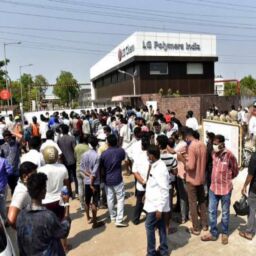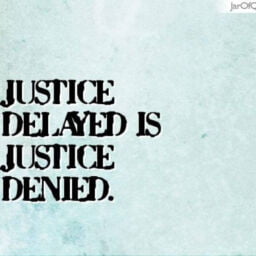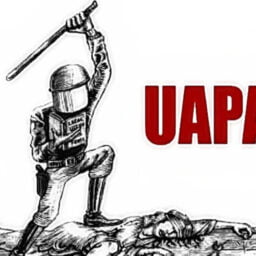INTRODUCTION
The Constitution of our great nation provides its citizens with the right to freedom and expression under Article 19. This right allows people to voice their opinions, regarding anything going on in the country, whether it’s about the government passing new laws, amending them, any controversial news, article etc, but there are exceptions since this right is not absolute. Recently, in some cases, we have started to see something called a Media trial. This term can be properly understood with the help of an example.
A year ago, a famous actor committed suicide by hanging himself from the ceiling. Since the actor was decently popular among the citizens of the country, people were eager to know the details regarding this unfortunate incident. Soon, news emerged that the actor faced hardship and was discriminated against due to being considered as an outsider. It was also reported that his girlfriend (an actress herself) was manipulative and her actions led to him committing suicide. Due to this incident being very famous nationwide, news related to it was gaining a lot of traction and TRP.
Consequently, the news channels and outlets across the nation started publishing more and more news regarding this incident. This led to the people already establishing the image of the said people in the case solely on the basis of such news as guilty or innocent, whereas this should only be decided by the court by giving a judgement after conducting a judicial trial with the help of evidence and litigation. This is what a media trial is. Judging a person as guilty or innocent, by producing news content, sometimes even twisting the facts or headlines to some extent to increase viewer engagement with their websites or channels. Here, not only media outlets but the people consuming such content are to be blamed as well, because if there was no demand for such type of information, the producers of the information would not produce it in the first place. Now that we know about media trials, we shall take a look at some of the most famous cases regarding media trial
Sanjay Dutt v. State Through C.B.I. Bombay
In this case, Sunjay Dutt was accused to have been played a role in the 1993 Mumbai blast and also had been accused of maintaining relations with some prominent terrorists like Abu sale, Hanif Kadawala, Samir Hingora, etc. He was also found having in his possession an AK-56 Rifle, for which he owned no license. Sanjay was sentenced to imprisonment multiple times under various acts in a span of a decade. He got bail in 2016 and was acquitted of his charges of terrorism. But the media had portrayed Sanjay to be such a criminal that the public had started to see him as a terrorist, due to which he suffered in his acting career because of his ruined reputation.
Pratim Alias Peter MukherjeE v. Union of India
In this case, Indrani Mukherjee was arrested under the charges of murder of a person named Sheena bora. It was later revealed that the victim was in fact the daughter of the accused, but the accused held onto her statement which was that Sheena bora was Indrani’s sister and not the daughter. This case went on for a few years more. Media in this case not only invaded the personal space and privacy of the accused by accessing the details regarding her personal life but revealed these details to the media too, when in fact these details were totally unrelated and irrelevant with respect to the actual case. This ignited great debates at the time on the morals and ethics of the media.
Yakub Abdul Razak Memon v. State of Maharashtra
Yakub Abdul Razak Memon was accused of terrorism and was suspected to be related to the infamous 1993 Bombay blasts. He was arrested and convicted by the ‘Special Terrorist and Disruptive Activities Court’ in 2007. In this case, the media criticized the lawyer attorney who defended Yakub Abdul Razak Memon, and due to this heavy criticism, the lawyer faced a lot of hardships and difficulties in carrying out his duties as a lawyer, which are providing legal aid to their clients.
THE EFFECTS OF A MEDIA TRIAL ON THE ACCUSED
When there is a media trial on the accused and if the accused is already declared as guilty, then the accused has to face a lot of hardships in even carrying out simple tasks, like driving to the court to attend the hearing, or exiting the court, etc. This also can be deemed to be a case of prejudice which is very unfair for the accused since our law gives everyone an equal chance of proving themselves innocent and views each and everyone as the same.
Also, when the accused is held guilty before the actual verdict, and the final judgement acquits the accused of all the charges, the accused still has to suffer damages such as ruined reputation in the society, due to the already established image of the accused as being the guilty one.
THE EFFECTS OF A MEDIA TRIAL ON THE WITNESSES
When there is a high-profile case, the security and protection of the witnesses of the case come under serious threat. Such cases result in a lot of media attention which causes a lot of chaos and disturbance in the life of the accused, which then compels the witness to not contribute honestly in the case and get out whenever there is a chance. This affects the judgement.
Such media trials also affect the administration of the whole judicial process, since there is a lot of disturbance in the life of the judges too. And if due to the media trials the accused has already been held guilty and the verdict acquits the accused, there is generally a lot of anger and outrage seen by the public against the decision which in fact sometimes puts the life of the judges in danger too. Thus this problem of Media trials is a very serious one and it must be stopped.
CONCLUSION
It is no denying that media is an essential pillar of democracy when utilised properly. But media itself owes a responsibility both ethically and morally to the people, the problem arises when media fails to stand up to that responsibility and starts to portray the people in a case and establishes an image or opinion of the said person. Not only does it affect the judicial proceedings but gives birth to multiple problems in the lives of the people involved in the case.
Like the USA, there is no ‘specific’ law or statute regulating the media in our country, the only law which even comes close is “Contempt of Court”. It states that “No publication, which is calculated to poison the minds of jurors, intimidate witnesses or parties or to create an atmosphere in which the administration of justice would be difficult or impossible, amounts to contempt.”
Besides this, the only governing bodies of media are the self-regulatory bodies of these channels, such as the ‘News Broadcasters Association’ and ‘News Broadcast Federation’. Every such self-regulatory body functions on its own set of rules and any complaint lodged against such companies are looked into by an independent body that is hired or headed by the members of these self-regulatory bodies. This results in low accountability and transparency on their side. Considering these issues, it is safe to say that a codified law or statute is essential in today’s times to prevent the misuse of the power wielded by the media of our country, because only when media is properly regulated and the news which is delivered to the people is unfiltered and verified, then only the democracy in this nation can flourish.
Author(s) Name: Suryansh Beohar (Chanakya National Law University, Patna)















